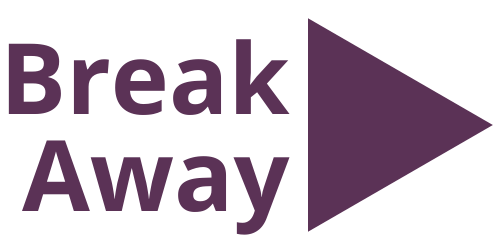Housing Organization FAQs
-
What are alternative breaks?
An alternative break is a service-learning trip where a group of college students engage in education and direct service, most commonly for a week during spring break. Throughout the experience, small groups (generally 10-12 students) engage in service alongside community organizations, education that explores a social issue from multiple perspectives, and forward-thinking reflection. Often trips take place away from campus — both domestically and internationally — which creates the need for affordable places to stay short term.
-
What is Break Away and how is it related to alternative breaks?
Break Away is the national nonprofit that supports community engagement programs. While we don’t plan or execute experiences ourselves, we do provide training, resources, and consultation to more than 150 schools and 125 community + housing organizations across the country. We can help connect you to interested and enthusiastic volunteer groups, offer phone/email consultation, and provide professional development opportunities for volunteer coordinators.
-
What is the Housing Bank? How can I create a profile?
The Housing Bank is an online database that provides alternative break programs with low-cost housing options when traveling for alternative breaks. Creating a free listing in the HousingBank is an opportunity to support volunteer engagement in your community, show generosity and hospitality to student leaders from across the country, and/or publicize your facility rentals to interested groups.
To create a profile in the HousingBank, first register as a housing partner. Navigate to the Housing Bank and click on the Account button and complete a profile with your contact information, basic details about accommodations, and the times of year you’re available to host breakers.
-
When will I be hosting students? What if I cannot host during a particular time of the year?
Alternative breaks take place during college breaks — fall, winter, summer, weekend, but most commonly, during spring break. If you are unable to host during one or more of these times, or your calendar is filled up for the year, just indicate that on your listing.
-
How many students will I need to host? For how long?
Alternative break groups are generally made up of 10-12 students. Some universities will send out smaller groups (as few as 5 students) or larger groups (as many as 50 students) who will break into smaller groups to work with local organizations. You can indicate the maximum number of students you are willing and able to host on your listing.
Most alternative break groups will need housing for about a week, while others will only need accommodations for a weekend. The school representative contacting you about housing will make their needs clear.
-
Will there be a university staff member present?
While nearly 65% of schools we work with do travel with a staff advisor, many alternative break groups are led by a pair of student leaders who are well trained in logistics and risk management. Additionally, alternative breaks are substance free experiences and alternative break students are expected to be well prepared and respectful of your time and property. We’d encourage open communication between your organization and the students you’re hosting to ensure clear expectations and guidelines for the use of your space — including quiet hours, cleaning tasks, use of shared spaces, etc.
-
Other than a place to sleep, what else do I need to provide?
Showers, accessible restrooms, and kitchen space is ideal but not required. Alternative break students are typically pretty resourceful and sometimes do a bit of what we like to call “indoor camping”. They can bring sleeping bags and utilize floor space for sleeping or get shower passes from a local YMCA if showers aren’t available onsite, for example. Some housing sites are able provide more amenities — such as meals, bunk beds, or linens — but most often students are prepared to pack their own supplies and practice resourcefulness.
-
How much should I charge?
Housing sites will often require a small fee per person, or set a suggested donation amount for the group. In cities, and higher cost areas, it is not uncommon for housing sites to require a higher per person or flat fee. Higher fees are also often seen when the facility is able to provide other services such as meals, linens, laundry, etc. Some sites — commonly churches and community centers — generously offer space for free, in exchange for a few hours of volunteer work or by donation only.
In general, we hope for a mutually beneficial outcome — where housing sites are able to cover costs and staff is appropriately compensated for any extra time spent to host the group and schools find accommodations that enable alternative breaks to remain affordable for students.
-
Who will I be in contact with during the planning process of an alternative break?
You may be contacted by a program staff advisor, a graduate assistant, a student director or executive board member, or the specific experience leaders. In any case, students and staff are well-versed in alternative breaks and will be able to guide you through the planning process.
